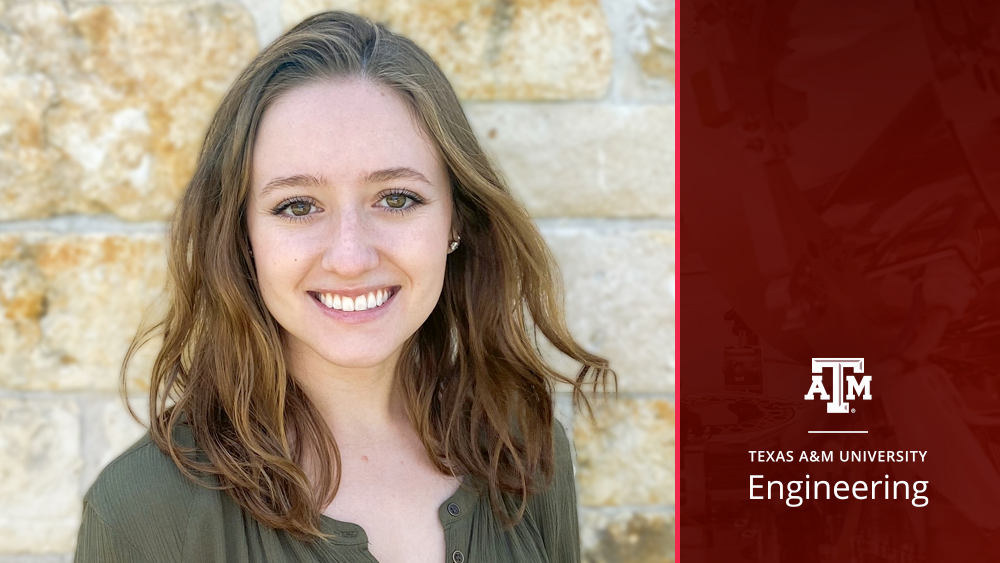
Growing up, Tessa Miller always enjoyed math, so when it was time to attend Texas A&M University, she knew whatever major she pursued would include math and her second interest of building design. She was torn between architecture and civil engineering, but civil engineering won out.
Now, Miller is a junior in the Zachry Department of Civil and Environmental Engineering at Texas A&M and was recently named the 2021 Gathright Phi Kappa Phi Outstanding Junior for the College of Engineering.
The Gathright Phi Kappa Phi Outstanding Junior award is a collaboration between The Association of Former Students, LAUNCH: Academic Excellence and the Texas A&M chapter of Phi Kappa Phi that recognizes the top junior in each of the academic colleges at Texas A&M.
Selection for the Phi Kappa Phi Gathright Outstanding Junior award is based on evaluating research and creative production, community engagement, accomplishments/awards and academic record. The dean of each respective college determines the final selection criteria.
A native of College Station, Miller had no doubt where she wanted to go to college at an early age.
"Both my dad and older brother attended (Texas A&M), so it was pretty much set in stone from the beginning," she said. "I was excited to have the opportunity to continue this tradition in my family and receive my own Aggie ring."
And Miller is continuing that tradition well. She has a 4.0 GPA, she's active in the Texas A&M chapter of the American Society of Civil Engineers (ASCE) and is currently serving as vice president of the organization. She participated on ASCE's concrete canoe team and was recently inducted into the civil engineering honor society, Chi Epsilon, where she will serve as editor of The Transit her senior year.
During her sophomore year, Miller traveled to Honduras for a week with Global Engineering Brigades to design a water system for a rural community. It was a humbling experience for her.
"From day one, we were welcomed by the community with open arms as they sang and performed dances for us. It was clear that they were extremely grateful to have us there," Miller said. "Just seeing the impact that a group of engineering students can have on a rural community reaffirms that the knowledge we gain in our classes at Texas A&M can be used to benefit those less fortunate. It made me appreciate many things in life that we take for granted and makes me excited to continue studying engineering to benefit those around me."
This experience helped her realize that she would one day like to use her knowledge of structures and years of experience in the industry to assist in recovery efforts in communities affected by natural disasters.
Miller has also worked as a student research assistant at the Texas A&M Transportation Institute, completed two professional internships and served as a peer teacher for an introductory engineering course. She offers this advice for freshmen engineering majors.
"Something I cannot stress enough, especially in engineering, is to learn time management. Engineering classes are intended to be difficult and demand a lot of time, but learning to manage your time between life and classwork can help alleviate some of the stress from the start," she said. "Whether that be using a planner or creating weekly to-do lists, providing yourself with smaller goals can help you tackle more demanding classes."
During her first semester, she would hear about the dreaded physics classes from upperclassmen, but one professor stands out as an inspiration to Miller.
"One of my most inspiring professors was Dr. Tatiana Erukhmova, who I had for both Physics 206 and 207. Her enthusiasm for the material and passion for teaching really engaged me as a student," Miller said. "Having a professor like her guide me through these classes made them achievable and prepared me for the harder classes that lie ahead."
After finishing her bachelor’s degree, Miller plans to pursue a master's degree in structural engineering and eventually work for a structural engineering consulting firm as a professional engineer.